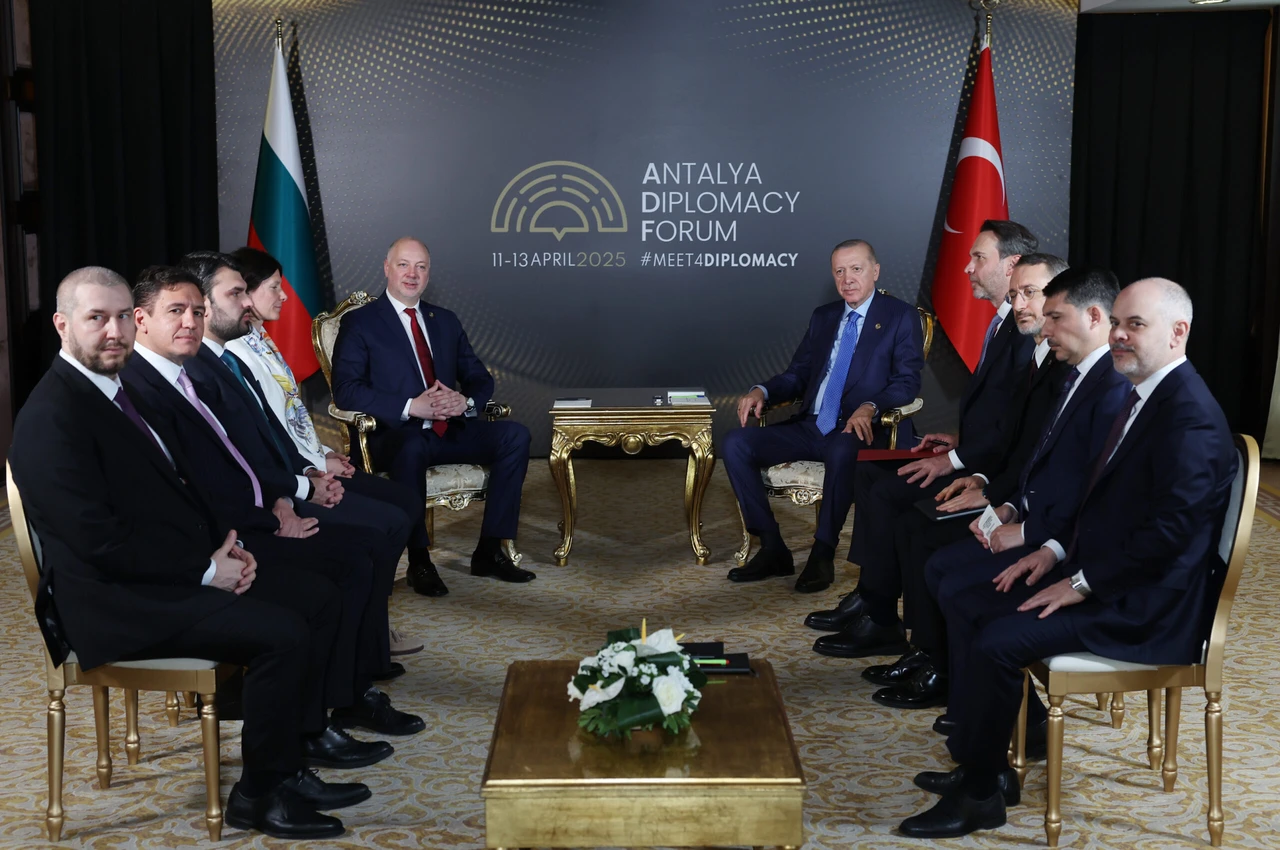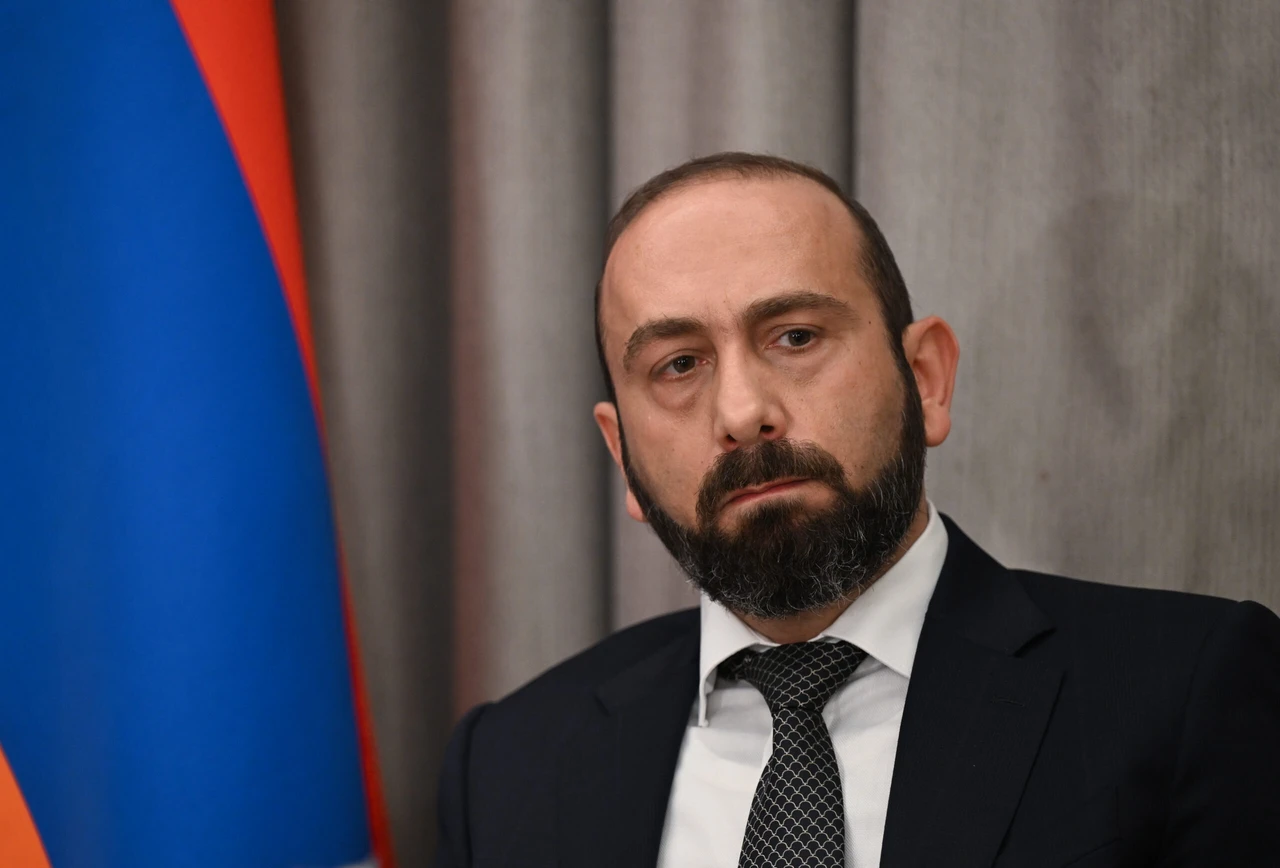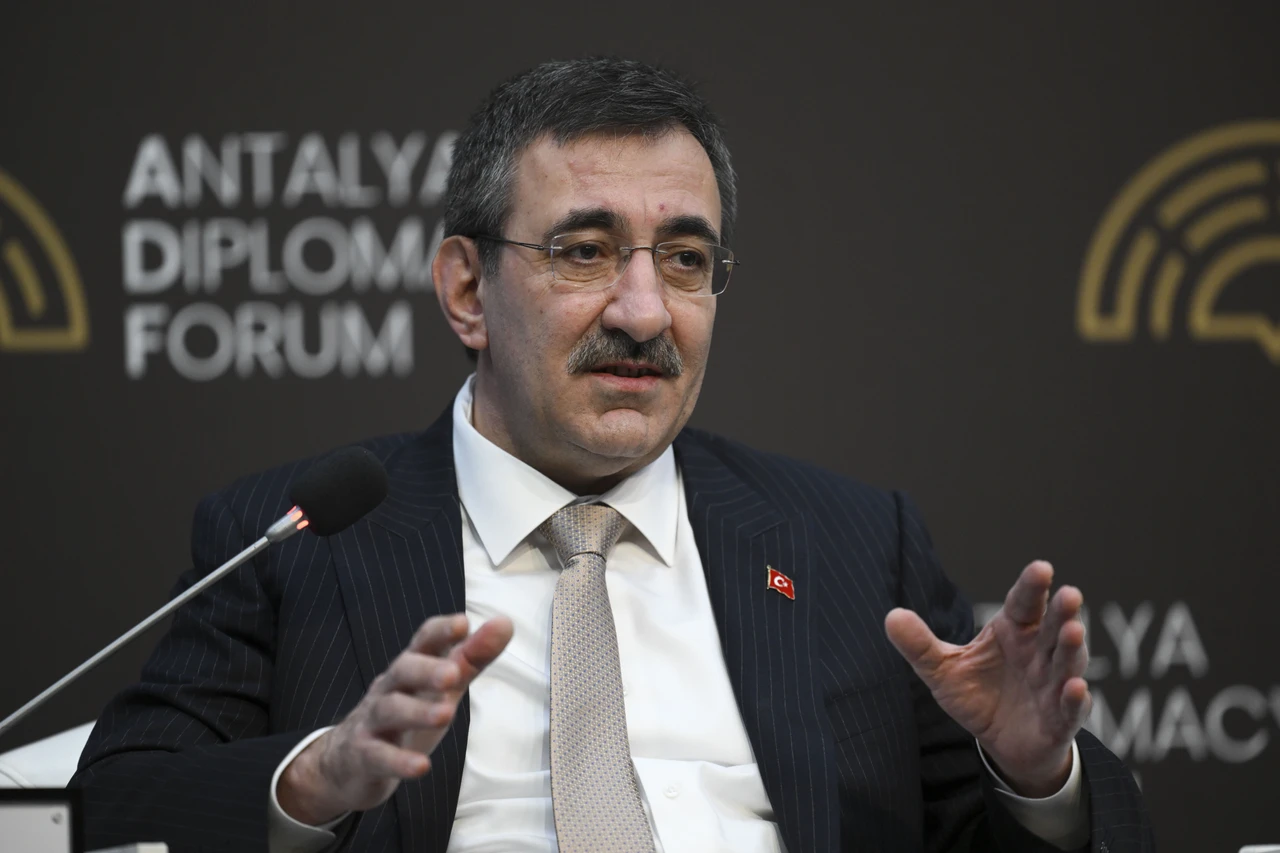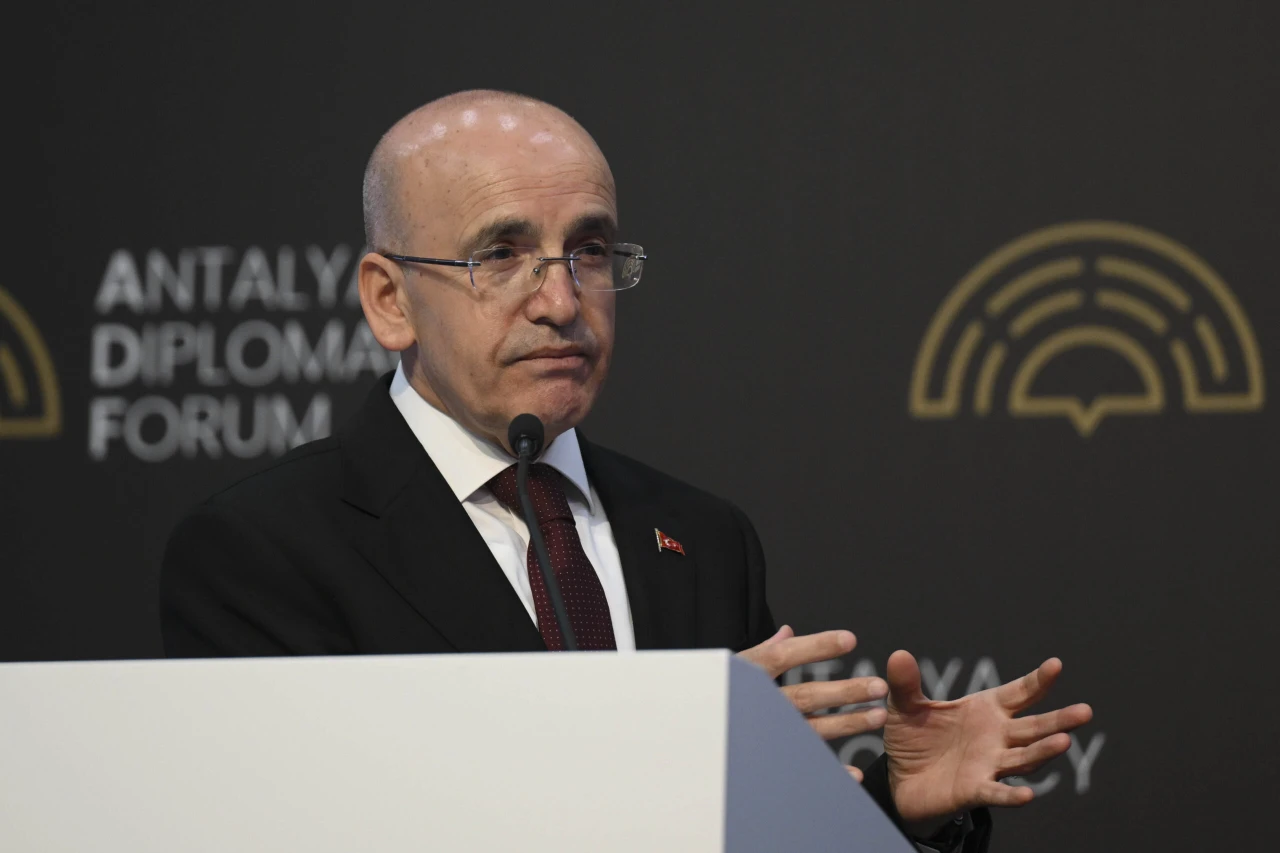Antalya Diplomacy Forum draws over 6,000 attendees from 155 countries
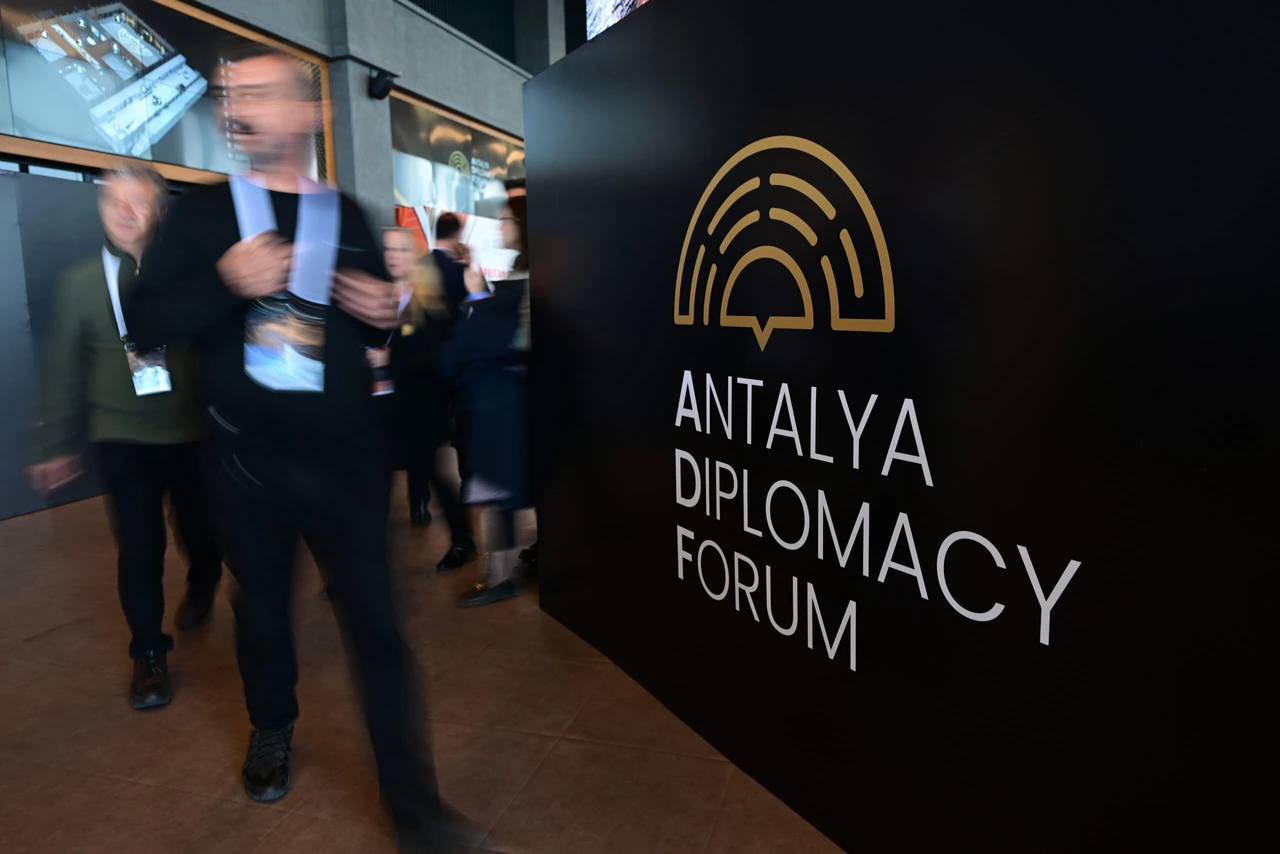 People visit the “Diplomacy Tunnel” where visual presentations are made at 4th Antalya Diplomacy Forum (ADF2025) at the NEST Congress Center in the Belek tourism region of Antalya, Türkiye, on April 11, 2025. (AA Photo)
People visit the “Diplomacy Tunnel” where visual presentations are made at 4th Antalya Diplomacy Forum (ADF2025) at the NEST Congress Center in the Belek tourism region of Antalya, Türkiye, on April 11, 2025. (AA Photo)
Foreign Minister Hakan Fidan stated that the 4th Antalya Diplomacy Forum (ADF) once again set the pulse of diplomacy this year, noting, “In total, we hosted more than 6,000 guests from 155 countries. Among them were 21 heads of state and government, five vice presidents, two parliamentary speakers, two autonomous regional leaders, 64 ministers, and 61 senior representatives of international organizations, as well as numerous representatives of think tanks, diplomats, academics, and businesspeople.”
Fidan spoke at the closing press conference of ADF, held at the NEST Congress Center in Belek, Antalya.
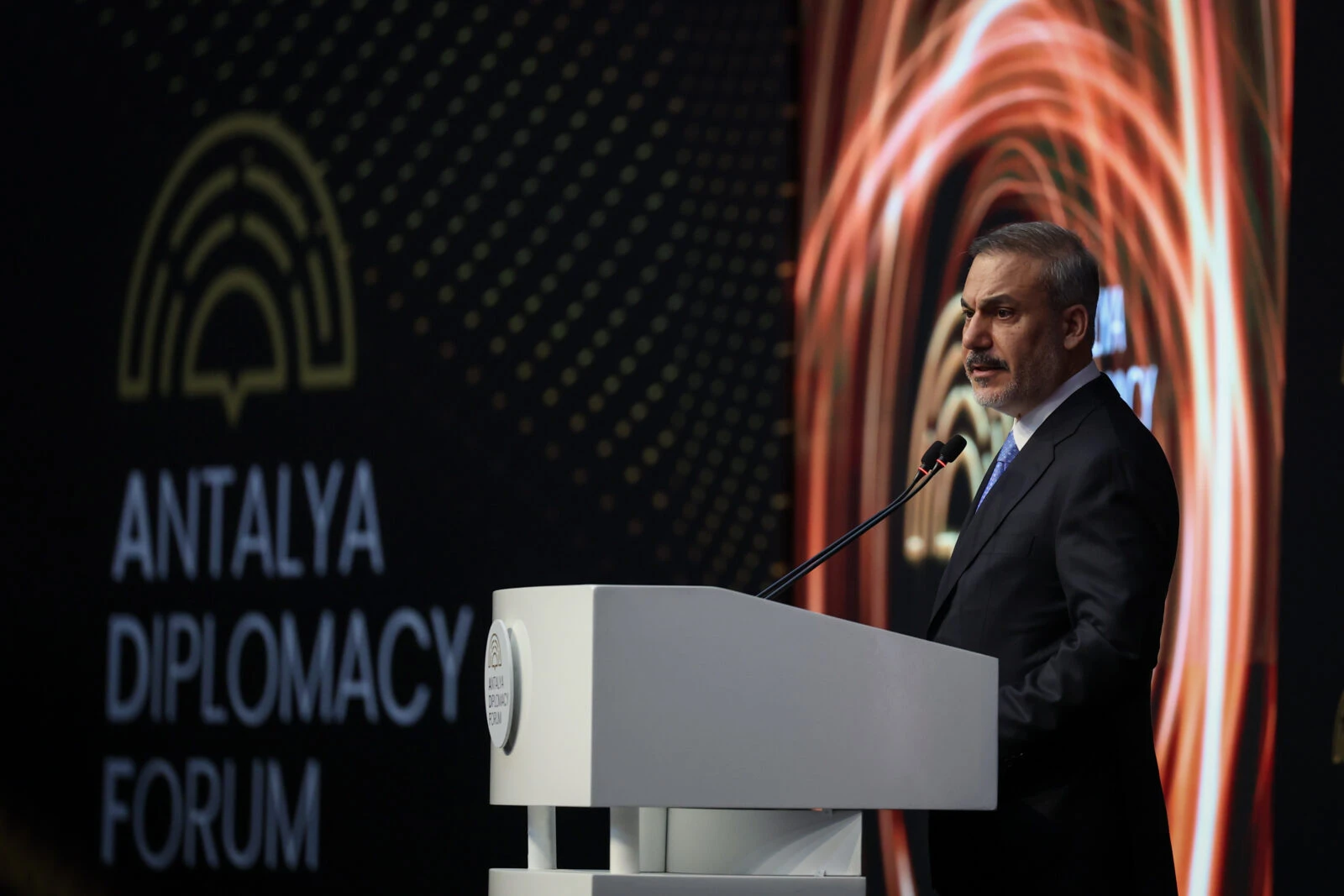
Forum emphasized diplomacy tool for peace
Highlighting that ADF emerged as a rich and multi-layered consultation platform, Fidan said, “This year, we collectively voiced hopes and concerns about humanity’s shared future. We discussed mechanisms of cooperation to build that future together.”
“We discussed how diplomacy, in a divided world, could prioritize reconciliation rather than polarization. We emphasized that diplomacy is not just a tool used in times of crisis but a transformative intellect and a restorative will.”
High-level participation, strategic sessions
“In this context, we held a total of 50 sessions, which is a remarkably high number by international standards,” Fidan said.
“In total, we hosted more than 6,000 guests from 155 countries. Among them were 21 heads of state and government, 5 vice presidents, 2 parliamentary speakers, 2 autonomous regional leaders, 64 ministers, 61 senior representatives of international organizations, as well as numerous representatives of think tanks, diplomats, academics, and businesspeople,” he reiterated.
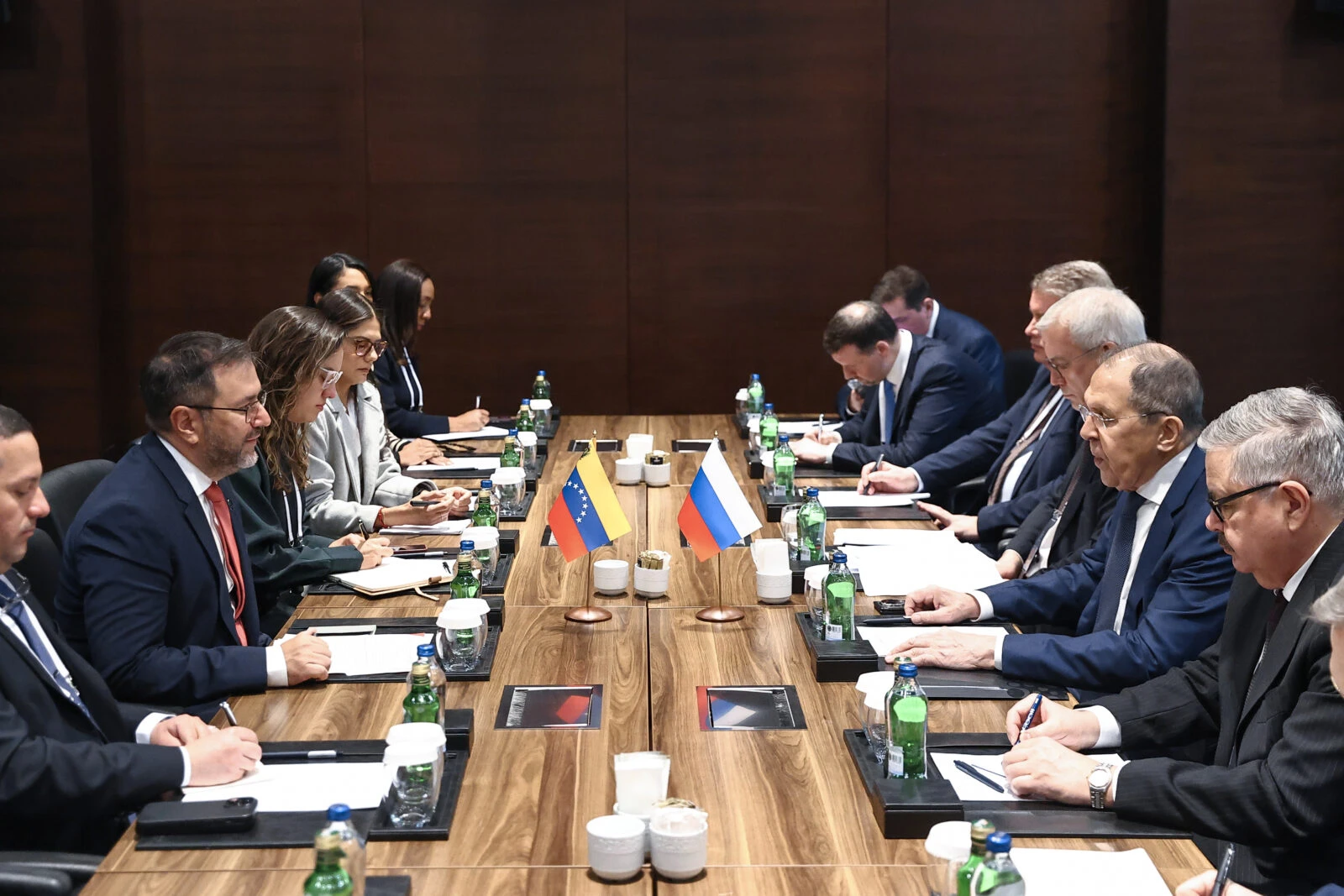
Erdogan-Trump meeting, Syria visit under review
Regarding a potential meeting between President Recep Tayyip Erdogan and U.S. President Donald Trump, Fidan said, “Work is ongoing. Whether the meeting will be in the U.S. or Türkiye is among the matters still under discussion.”
On Erdogan’s possible visit to Syria, Fidan stated, “In general, our president has such an intention. We are working on suitable conditions, timing, and setting. When he realized, he wished to visit Syria.”
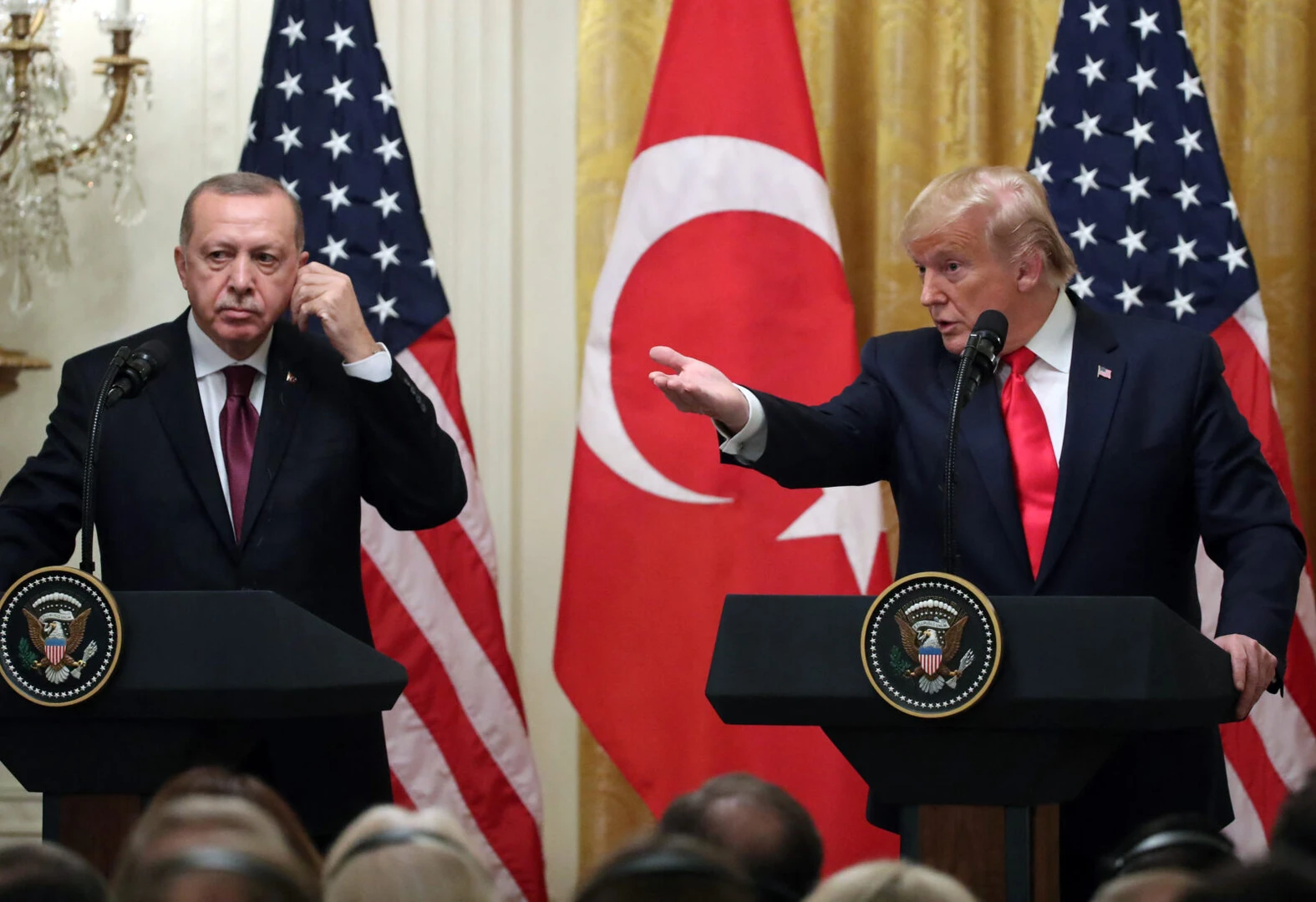
Security, instability in Syria
Fidan addressed Türkiye’s role in Syria’s security, saying, “The extent of Türkiye’s contribution to Syria’s security needs is well known. It is also clear that the operations Israel has long carried out inside Syria have not served stability but rather contributed to instability.”
He emphasized the need for deconfliction protocols: “In Syria, we must ensure that actors like Israel, the U.S., Türkiye, and Russia do not face off directly. Technical and military-level rules of air deconfliction should be established.”
Fidan thanked Azerbaijan for hosting a meeting between Turkish and Israeli officials regarding airspace coordination, noting, “These were technical talks about resolving airspace issues, and they may continue when needed.”
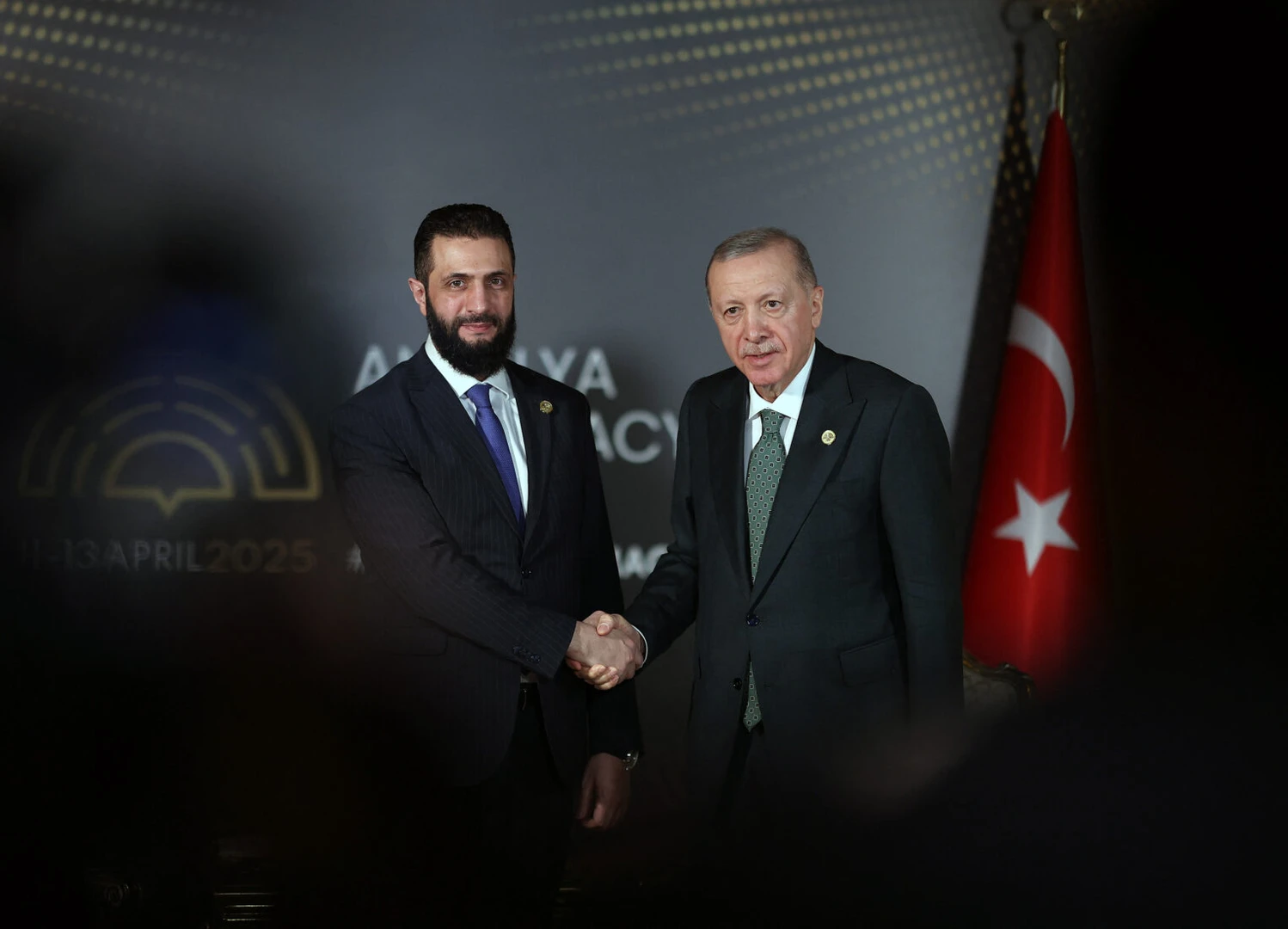
Gaza, global diplomacy, and Ankara’s role
Fidan affirmed, “We will continue our efforts with full determination to stop the bloodshed in Palestine. We are committed to being the voice of the Palestinians in the face of Israel’s genocide.”
“As long as the support coming from Europe and the U.S.—where greater capital and political power is concentrated—does not stop, this crime against humanity, this genocide, will not end,” he continued.
“This situation will produce costs not only in the short term but also in the medium and long term for the international system. But the sensitivity regarding Gaza must absolutely not fade,” he warned.
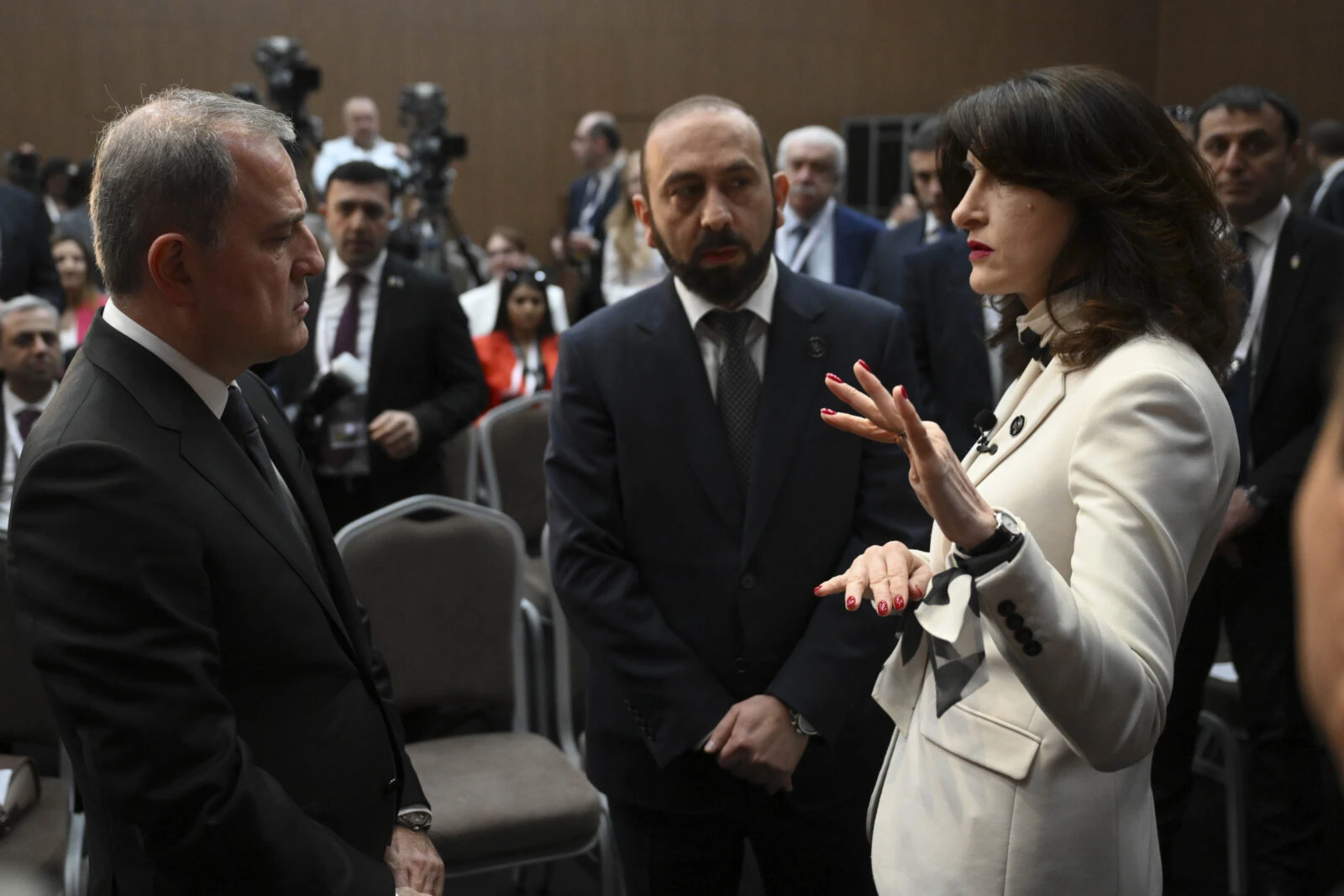
Multipolar diplomacy, strategic vision
Fidan outlined Ankara’s global outlook, saying, “We do not confine foreign policy to geographic borders. We diversify cooperation and strengthen bridges of friendship.”
He emphasized mediation, stating, “We continue to build trust and bring parties closer together through dialogue and mediation.”
Regional alliances, EU defense
“We continue to support a diplomacy that relies on regional ownership and cooperation in the face of global polarization. At the last NATO Foreign Ministers Meeting, the strengthening of Europe’s defense industry in cooperation with Türkiye, the UK, and the U.S. was discussed,” he said.
On the EU, Fidan said, “The EU chose not to include Türkiye. In our region, we see either a rule-based structure like the EU or a foreign policy based on strong, stable leadership as seen in Türkiye.”
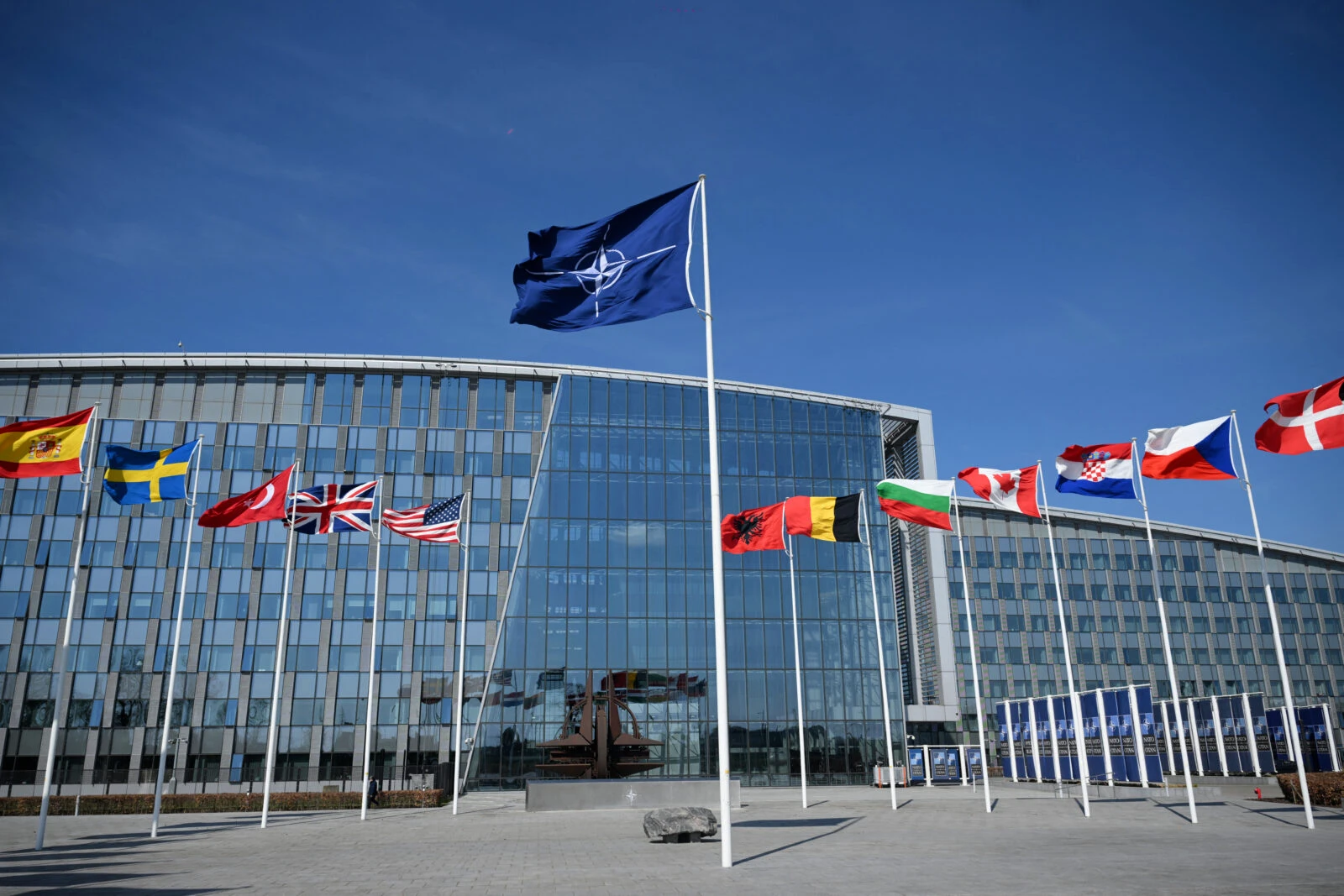
Russia-Ukraine war, US-Russia talks
In the Ukraine war, Fidan remarked, “Our president has a strong will to contribute to peace in every way possible.”
Russian and U.S. delegations met in Istanbul on April 10 to discuss reopening frozen areas and consular activities,” he added.
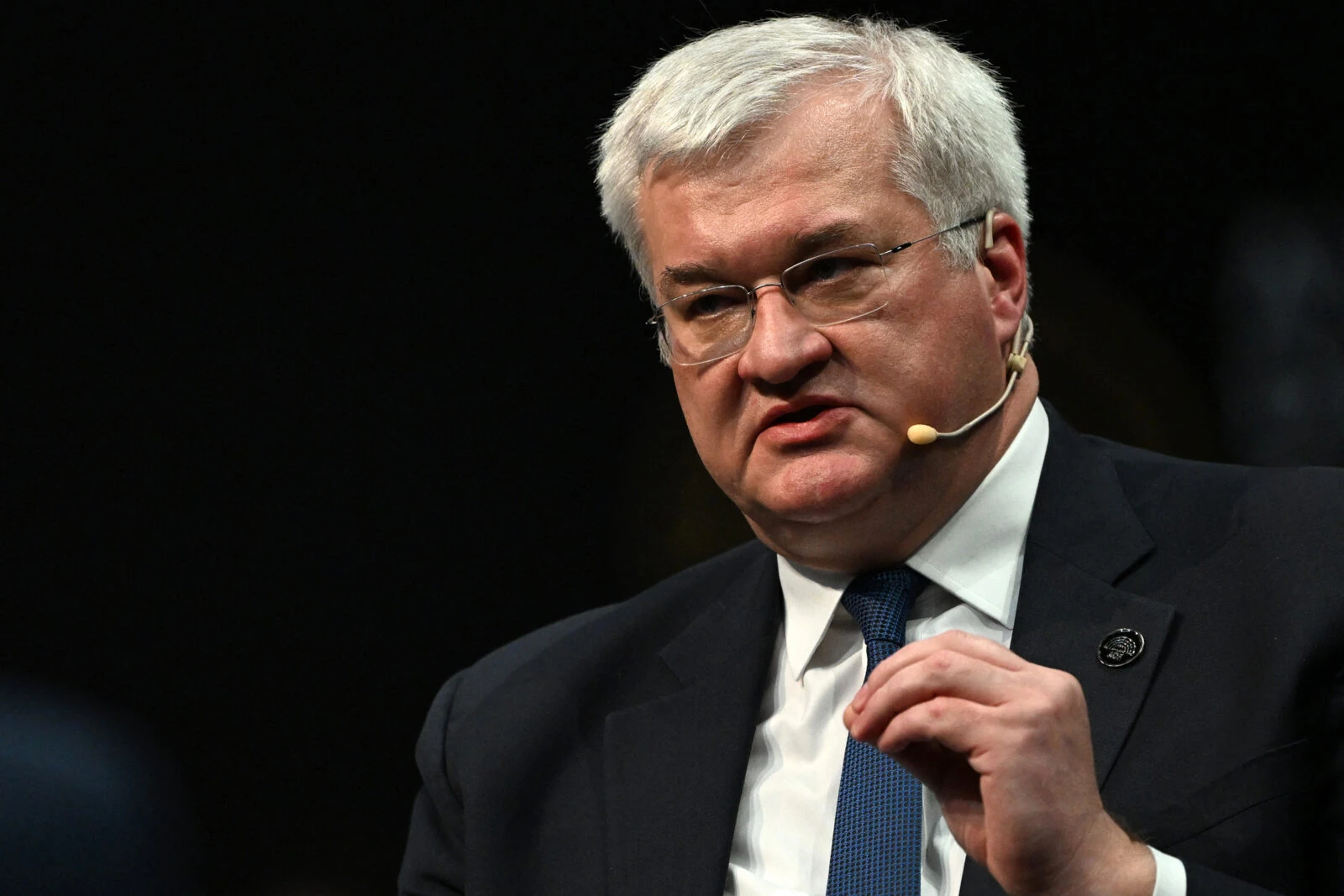
Türkiye’s partnerships in Africa, Asia
Fidan reiterated Türkiye’s support for Africa’s post-colonial development, saying, “Türkiye will continue to support African states in their maturing and independence struggles.”
He stressed that Türkiye has embassies in over 40 African countries and significant business ties through Turkish companies.
On trade, FM Fidan said, “Business development in mining, agriculture, health, and energy sectors needs stronger knowledge and relations. It must be reciprocal,” he said.
Ankara’s diplomatic activity on Gaza
Fidan recalled the Gaza Contact Group meeting, saying, “We met with counterparts from the Organization of Islamic Cooperation, Arab League, EU, and UN Security Council members.”
We prepared an action paper on how to be more creative and effective. For now, we are keeping it internal. But as activities unfold, you will see it,” he added.

Türkiye’s expectations from Islamic countries
“We’ve taken every step in our power—from recalling ambassadors to halting trade. We’re also active in OIC, D8, EU, and Arab League platforms,” he emphasized.
“Perhaps Islamic countries should now shift diplomatic focus from Israel to influencing the U.S., which is the only power capable of altering Israel’s course without war,” Fidan said.
